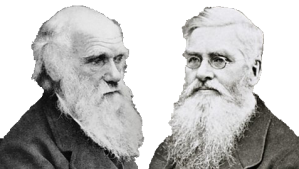
Evolutionary biologist, entomologist, and Darwin and Wallace scholar Jim Costa is professor of biology and executive director of Western Carolina University‘s Highlands Biological Station in Highlands, North Carolina, where he teaches courses on biogeography, Darwin’s Origin of Species, and a comparative temperate-tropical ecology field course between Highlands Biological Station and Wildsumaco Biological Station in Ecuador. For many years he also co-taught in Harvard’s summer Darwin program at the University of Oxford.
A long-time Research Associate in entomology at Harvard’s Museum of Comparative Zoology, Jim has studied insect ecology and social behavior from the southern Blue Ridge Mountains of North Carolina to Central and South America, and has authored numerous scientific research papers and the book The Other Insect Societies (Harvard University Press, 2006) — a celebration of little known and obscure forms of social behavior across the world of arthropods.
In more recent years Jim’s research and writing have largely focused on Darwin, Wallace, and the history of evolutionary thinking. In addition to many academic papers and magazine articles, Jim has published a number of books on Darwin and Wallace. In 2009 Harvard published The Annotated Origin, Jim’s annotated edition of On the Origin of Species, designed to guide readers through the historical context, structure, and content of Darwin’s masterwork. Darwin’s Backyard: How Small Experiments Led to a Big Theory (W. W. Norton, 2017), AAAS/Subaru SB&F Prize finalist, is a kind of biography of Darwin seen through the lens of the naturalist’s family life and working method — with a focus on his life-long passion for “experimentising.” A unique feature of this book is the DIY sections of each chapter, inviting readers to try their hand repeating a selection of Darwin’s studies including flower structure and pollination, climbing and carnivorous plants, earthworm behavior, and more.
Jim has also published extensively on the life and thought of Alfred Russel Wallace, renowned scientific traveler, founder of evolutionary biogeography, and co-discoverer with Darwin of the principle of natural selection. On the Organic Law of Change (Harvard, 2013) presents a facsimile reproduction and annotated transcription of Wallace’s most important notebook kept during his travels in the Malay archipelago — the remarkable “Species Notebook,” in which (among other things) Wallace reveals detailed plans for a book on transmutation, as evolution was called then — a plan unfortunately abandoned once Wallace learned about Darwin’s book-in-progress. In Wallace, Darwin, and the Origin of Species (Harvard, 2014) Jim examines the intellectual trajectories and relationship of Darwin and Wallace, showing the remarkable parallels in the paths to evolution by natural selection taken by these giants of evolutionary biology as they independently worked on the mystery of species origins. Jim later worked with Wallace scholars Charles Smith and David Collard to co-edit An Alfred Russel Wallace Companion (Chicago, 2019), exploring the broad sweep of Wallace’s intellectual interests in a dozen chapters. Most recently, he published the new biography Radical by Nature: The Revolutionary Life of Alfred Russel Wallace (Princeton, 2023), his homage to Wallace marking the bicentennial year of the birth of the incomparable explorer, naturalist, and humanitarian.
Jim is a recipient of the Alfred Russel Wallace medal, serves as a Trustee of the Charles Darwin Trust, and has held research fellowships at Harvard’s Radcliffe Institute for Advanced Study, the Wissenschaftskolleg zu Berlin, the LuEsther T. Mertz Library of the New York Botanical Garden, and the DFG-Centre for Advanced Study at the University of Hamburg. In 2023, Jim was awarded the Stephen Jay Gould Prize from the Society for the Study of Evolution. He lives in Cullowhee and Highlands, North Carolina with Leslie Callaham Costa, his wife and partner of over 30 years. They have two sons, Addison and Eli Costa.
